PART 3 OF THE CHARACTER DISCUSSION OF VARYS
One of the central questions in the book is Varys’ riddle…George R.R. Martin
Varys is a figure of vital importance in A Song of Ice and Fire. He is key to both the political action of the series and its political wisdom.
The core of his political philosophy, if one can use that term, is encapsulated in a riddle. The riddle — which concerns the nature of power itself — first appears in Chapter 3 of A Clash of Kings, where it is posed to Tyrion Lannister. Varys has found Tyrion at a King’s Landing inn, where the latter is ensconced (secretly, he believes) with his mistress, Shae.
Before Varys takes leave of Tyrion and Shae, he poses the riddle: “In a room sit three great men, a king, a priest, and a rich man with his gold. Between them stands a sellsword, a little man of common birth and no great mind. Each of the great ones bids him slay the other two. ‘Do it,’ says the king, ‘for I am your lawful ruler.’ ‘Do it,’ says the priest, ‘for I command you in the name of the gods.’ ‘Do it,’ says the rich man, ‘and all this gold shall be yours.’ So tell me – who lives and who dies?”.
The riddle is terrific. It emphasizes the centrality of political questions to the work as a whole, and it essentially asks the question, “what IS power?”. The riddle is also, in a way, Varys’ version of the so-called “Prisoner’s Dilemma”. But it is a far superior version.
For those who are not familiar with the Prisoner’s Dilemma, it is basically a thought experiment which aims to show why rational people (where the definition of “rational” is quite dubious) do not necessarily cooperate with one another, even when it is in their best interests to do so. If the “three great men” in Vary’s riddle have any actual power over the swordsman, why don’t they cooperate with one another to direct him well? And if they don’t have actual power over him, why would the “little man” bother to listen to any of them?
The Prisoner’s Dilemma was first developed by two mathematicians, Merrill Flood and Melvin Dresher, and then it received its most famous expression, as well as that in which it acquired its name, in the work of a third mathematician, Albert W. Tucker, in 1950.
Tucker expressed the dilemma along the following lines. Two individuals have been arrested for committing a crime and have been put into separate isolation cells. They are each presented with a choice – they can confess to the crime or they can remain silent. If either one confesses, while the other remains silent, the one who has confessed will go free and the other will remain imprisoned for a long time. If both individuals confess, then both will remain imprisoned, but for a shorter amount of time than either one would if the other betrays him. And if both remain silent, they will both remain imprisoned, but for a much shorter period of time than they would otherwise.
So the dilemma is that, from their own perspectives under the circumstances, each individual is better off confessing to the crime, but their confessions will bring worse consequences for them. This is all fine and good, and the Prisoner’s Dilemma has gone on to win much attention and influence for itself. It is an important part of game theory, and it is much cited and referred to in any number of academic disciplines, such as sociology, economics, political science, psychology and others.
But what bearing does it have on human reality? What the Prisoner’s Dilemma really demonstrates, at the end of the day, is that if you place enough limits on human beings, in terms of their possible actions, their choices and the possible consequences of them, then those same human beings will behave in a predictable manner. If you lose your legs, after all, we can reasonably predict that you won’t be walking anywhere, anytime soon.
Varys’ riddle can be understood as a corrective to this sort of thinking, because it begins with political realities, which are diverse and practically unlimited in the possible choices and potential consequences that attend to them. The riddle is not some artificial attempt to reduce mankind to a little rat in a maze, with just two paths and a treat at the end of one of them. Indeed, the whole of A Song of Ice and Fire, with its dazzling array of characters, peoples, nations, and empires, stands against such trivialization of political things. The fantasy is far more realistic than the purported science.
The sheer number of considerations that one must make, in attempting a resolution to Varys’ riddle testifies to this recovery of political appearances. One must consider each of the human types in the riddle, the priest, the king, the rich man, and the swordsman, and one must consider what they represent, what power they possess, if any. One must consider if there are not more swordsmen waiting in the wings, to obey one or the other authority if this swordsman does not. One must consider the interests of the involved parties, as well as the justice or injustice which might attend to the swordsman making a choice. The apparent rules of the game are few, but the choices are many.
As Martin put it in the interview quoted at the top of this article, “…why does anybody do what they say? This is the fundamental mystery of power and leadership and war through all history.”
Varys himself provides a possible solution to the riddle, during a later conversation with Tyrion, this time in Chapter 8 of A Clash of Kings. There, Varys asks Tyrion if he has considered the riddle at all, in the time since it was first presented to him. Tyrion says that he has, but that he the riddle seems problematic to him. In Tyrion’s view, it is a riddle without an answer, or rather, a riddle with “too many answers”.
Tyrion’s concern up to this point acknowledges the manifold unknown variables in the riddle, although he regards these as its weakness, not its strength. Everything, Tyrion says, “depends on the man with the sword”. Is the man with the sword a poor man, for instance, and does he have a family to support? Is he perhaps ambitious, or is he greedy? Is he religious? Is he a patriot? These things will surely affect his decision. And yet Varys responds that the man with the sword is “no one”, because he has “neither crown, nor gold, nor favor of the gods”.
According to Varys, the swordsman in the riddle has only “a piece of pointed steel”. Tyrion’s answer to this is that a piece of pointed steel is the power of life and death, and Varys agrees to that. But Varys goes further – he argues that if the weapon is the ultimate thing, then we would all be ruled by swordsmen (or their analogues), and it would be strange that we pretend to be ruled by kings. Tyrion argues that the kings can call more swordsmen, to which Varys points out that, if such were case, then it would not actually be the swordsman in the riddle who has the power, but these “other” swordsmen.
Having so problematized the view that the power might belong to the swordsman himself, Varys problematizes the claims to power made by the three “great men”. He says, “Some say knowledge is power. Some tell us that all power comes from the gods. Others say it derives from law. Yet that day on the steps of Baelor’s Sept, our godly High Septon and the lawful Queen Regent and your ever-so-knowledgeable servant were as powerless as any cobbler or cooper in the crowd.” So where is the power? What is the power?
Varys’ proposed solution is as follows: “Power resides where men believe it resides. No more and no less.” And when Tyrion protests that this makes of power no more than a “mummer’s trick”, Varys simply agrees and then elaborates: “A shadow on the wall, yet shadows can kill”.
There is an argument to be had here with Lord Varys, and perhaps even with his one indisputable master, G.R.R. Martin himself. Is power simply a matter of belief? Even Varys acknowledges that “shadows can kill”, but is this acknowledgment ultimately reconcilable with the view that power resides where men believe it to reside, no more and no less?
The power of the blade in the swordsman’s hand is real, as is the power of the swords in the hands of those who might follow him. The rich man’s money is not “real” in the sense that money is a work of imagination, but the goods and services for which money acts as a medium of exchange, these things are real enough.
And what of imagination? The king in the riddle has the power of state, and many of the institutions of state rely upon imagination to give them form, but does that strip them of reality? Are the interests of the people that comprise the state, rulers and ruled, unreal? And the case of the priest is a further wrinkle still. Varys’ answer to his own riddle requires that belief establishes the gods, rather than that the gods evoke belief. Varys reduces religion to politics here, and that might be quite right, but it also might not be.
There is even a sense in which Varys’ solution to the riddle merely changes the language of the problem. For if power is first and foremost a matter of belief, then we are compelled to ask what directs, determines, and strengthens belief. And then we are going to be having an almost identical series of deliberations to what we had in the beginning, though we will be more often referring to believed powers than actual powers.
It would seem to be more satisfying to say, as the books otherwise indicate, that power is diverse in its modes and expressions, varying even according to time, place, and circumstance.
Indeed, when one considers the overall scope of A Song of Ice and Fire a difficulty emerges with Vary’s theoretical position. Varys is something of a skeptic or realist, and his riddle, which treats the claims of the priest as identical to that of the king and rich man reflects that. But this equivalence is hard to reconcile with the magical side Martin’s known world.
Even though politics take the fore in the series, and it generally appears realistically rendered, there is magic at work in the world of A Song of Ice and Fire. The gods of the world are active and no trick of the mind, as far as we the readers can tell – the gods kill people and sometimes resurrect them, they provide visions and effective prophecies, they empower assassins, and they facilitate changes of shape between species. It is hard to reconcile a context quite so rife with supernatural events to the outlook of a skeptic, or indeed that of a realist, who thinks that one must only appear to please the gods for purposes of politics.
But even if Varys’ theoretical account of power is deficient in this respect, it is still subtle, and it still supports the practical political wisdom evinced by him. Belief is a powerful thing, although it does have limits, and recognizing the power of belief is itself powerful, for it enables the exploitation of particular beliefs and believers. Just as power comes in manifold forms at different times and places, belief, too, is a changeable and a fluid thing. So a theory of power that identifies it with belief is well-positioned for success in practical application. The action of A Song of Ice and Fire would appear to bear this out – Varys is able to be as effective as he is in politics largely because the view of power he espouses is conducive to it. His solution to his own riddle might not be entirely true, but it does work.
READ PART 1 OF THE CHARACTER DISCUSSION OF VARYS
READ PART 2 OF THE CHARACTER DISCUSSION OF VARYS
RETURN TO THE MAIN HUB FOR DISCUSSION OF THE POLITICS OF A SONG OF ICE AND FIRE HERE.
(Image: Spiders Web by Camon90, distributed under a CC BY-SA 3.0 licence. Via DeviantArt.)

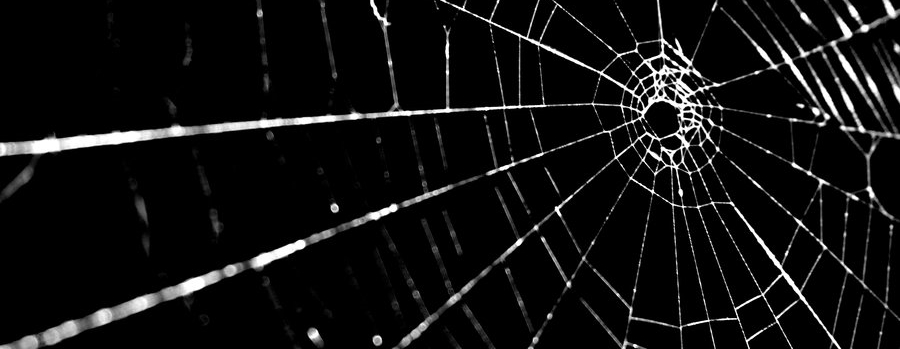
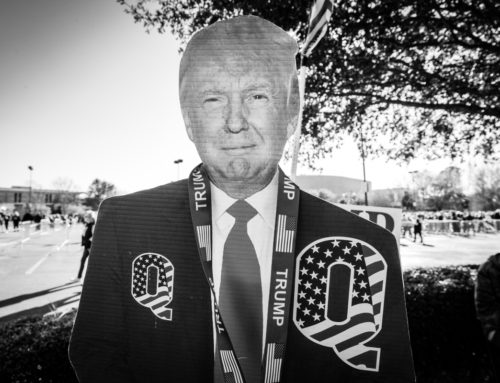


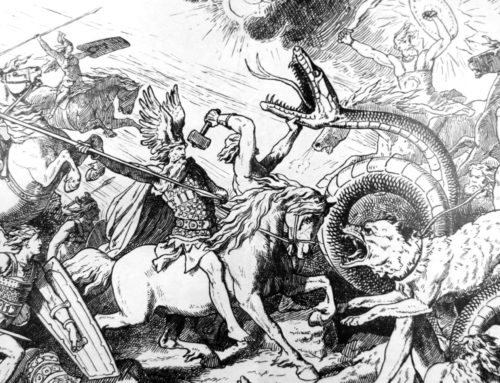
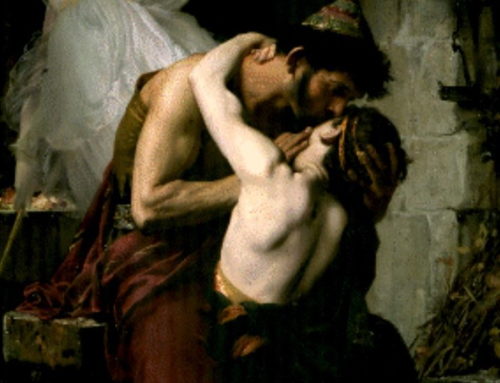
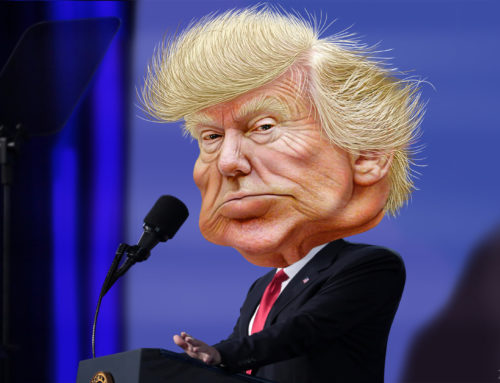
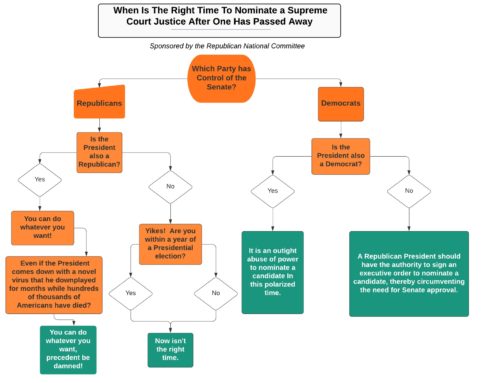
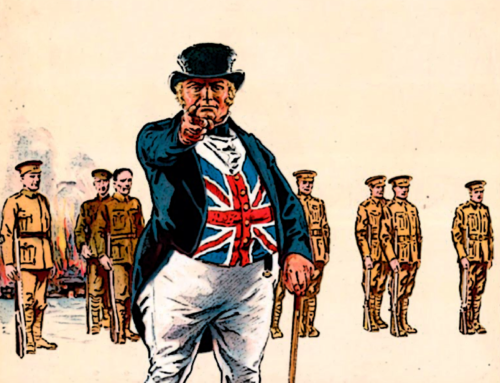
An analytical approach: The riddle consists of two parts that constitute power in coming together. On the one hand, we have an multitudinal approach to power. This idea implies that power rests in the actions of the people. Talking about sellswords could also imply that in Varys’ sense power rests in a male, martial group of society, but in my point of view Varys could as well mean all the members of a society in this context. On the other hand, power in this riddle is executed by the agents that give people reasons to choose specific actions. Yet, what Varys leaves open (or where he is maybe even misleading Tyrion) is the question, whether these agents (kings, priests, merchants) totally control the room of reasons or whether the sellsword can do some reasoning himself. Which means: whether the sellsword could come to the conclusion to kill all three agents that tried to manipulate him for their cause.
The reasons the rulers give shall be motives for the people to act, which connects the two parts of the definition of power. But, here again, we have no clue which motives are rooted so deeply in a society that they will be convincing; we could try to figure out by an in-depth analysis of Westerosi society. Still, I guess, it isn’t the point of the riddle to find out which argument will convince the sellsword.
The three agents relate to three fundamental dimensions of every society: a system of norms (law), which regulate social interactions, a system of ideology (religion), which defines goals in lifetime and maybe even beyond, and a system of material reproduction (market), which at least should deliver the goods necessary to live.
Usually, these three dimensions are thought of being complementary to each other to constitute a well-ordered society. In traditional societies there is a strong connection of these three dimensions so that life is regulated in every detail and every agent knows in any situation how to act. Obviously, when these spheres of action come to contest each other, people suddenly have options and have to decide for some reason to act in a specific way. These reasons at least can be constructive, but finally they become destructive when these spheres come to fight for a hegemony of their own currency of power (maybe like honor, piety, money), like in this case where the powerful ignore their dependency on the other spheres.
Since there are reasons given to destroy other parts of the order of society, and it is totally undeterminable for which side men will take up arms, people will end up in a civil war. Of course, someday in some way order is restored: either by a new balance of the spheres that are all fundamental to a societal life – or by sword. This could also lead to a democratic revolution, when people realize that any agent “in power” actually depends on their decisions.
What Varys wants to point out with the shadow-metaphor is that on the one hand the question of power only comes to be asked when relations and decisions lose their natural, traditional character but become questioned; when there is space for interpretation. On the other hand, power still can be executed by those agents in power as long as people don’t question their authority; which means as long as people do not realize that they do not depend on the reasons seemingly powerful people give the actions of common people (of course, they still depend on some contingent form of organisation), but that these kings, priests, merchants depend on their decisions. People then come to act as if power didn’t reside in their hands and follow the instructions.
I largely agree on the Machiavellian-Beast-Thesis. Yet, I have a different approach to the riddle than prisoners dilemma. It is rather an analytical approach to the question of power:
The riddle consists of two parts that constitute power in coming together. On the one hand, we have an multitudinal approach to power (for political theorists: look up Spinoza). This idea implies roughly spoken that power rests in the actions of the People. Talking about sellswords could also imply that in Varys’ sense power rests in a male, martial, command-executing group of society, but in my point of view Varys could as well mean all the members of a society in this context. On the other hand, power in this riddle is executed by the agents that give people commands, which become reasons to choose specific actions when these imperatives differ. Yet, what Varys leaves open (or where he is maybe even misleading Tyrion) is the question, whether these agents (kings, priests, merchants) totally control the room of reasons or whether the sellsword can do some reasoning himself. Which leads to another option: The sellsword could come to the conclusion to kill all three agents that tried to manipulate him for their cause.
The reasons the rulers give shall be motives for the people to act, which connects the two parts of the definition of power. But, here again, we have no clue which motives are rooted so deeply in a society that they will be convincing; we could try to figure out by an in-depth analysis of Westerosi society; e.g. if religion plays a dominant role in society and has a hierarchy over other contexts, the sellsword will probably choose to side with the priest. Still, I guess, it isn’t the point of the riddle to find out which argument will convince the sellsword.
The three agents relate to three fundamental dimensions of every society: a system of norms (law), which regulate social interactions; a system of ideology (religion), which defines goals in lifetime and maybe even beyond; and a system of material reproduction (market), which at least should deliver the goods necessary to live.
Usually, these three dimensions are thought of being complementary to each other to constitute a well-ordered society. In traditional societies there is a strong connection of these three dimensions so that life is regulated in every detail and every agent knows in any situation how to act; the spheres where the systems have power are clearly divided. Obviously, when these spheres of action come to contest each other, people suddenly have options and have to decide for some reason to act in a specific way. These reasons at least can be constructive (work hard, live in piety, be loyal to the crown), but finally they become destructive when these spheres come to fight for a hegemony of their own currency of power (like honor, piety, money), like it is the case in the riddle. The first conclusion therefore is: The powerful ignore their dependency on the other spheres.
Since there are reasons given to destroy other parts of the order of society, and it is hard to determine for which side men will take up arms, people will end up in a civil war. Of course, someday in some way order is restored: either by a new balance of the spheres that are all fundamental to societal life – or by sword. This scenario could also lead to a democratic revolution, when people realize that any agent “in power” actually depends on their decisions.
In my opinion, what Varys wants to point out with the shadow-metaphor is that on the one hand the question of power only comes to be asked when relations and decisions lose their natural, traditional character but become questioned; when there is space for interpretation. On the other hand, power still can be executed by those agents in power as long as people don’t question their authority; which means as long as people do not realize that they do not depend on the reasons seemingly powerful people give the actions of common people (of course, they still depend on some contingent form of organisation), but that these kings, priests, merchants depend on their decisions. People then come to act as if power didn’t reside in their hands. They see a shadow rather than the person that has actually no more power than they have.
I think your approach is very interesting, kev. I wonder, though, what the common man in the riddle would be if he killed all three of the great ones. What is a man with no god, no state, and no money? Is he a perfectly free being, whole and complete unto himself? Or is he something far less? I am reminded of Aristotle’s saying in The Politics, “Anyone who either cannot lead the common life or is so self-sufficient as not to need to, and therefore does not partake of society, is either a beast or a god.”.
If he kills all 3, then the sellsword is Varys himself and he has accomplished his ultimate goal. To turn Westeros into the Free City of Braavos. So Westeros could become financially rich, and prosperous. A land with fair anf equal rights, the greatest banking system to ever be!! A free land with no entitlements based of your name. A land of democracy, with elected officials. Varys goal, a new aged world of capitalism and democracy, where a man or women can become their worth regardless of names and titles.
The Song of Fire and Ice is Varys story of how he turned Westeros into the Free and United Citys Westeros. The UCW ( United City’s of Westeros).
Well that’s at least my opinion…… Lol. Let me know what you guys think…
-Daniel
Sounds funny, but I see no textual basis for it whatsoever. Can you point to one instance in the books (or even the show, for that matter), where Varys acts or speaks on behalf of a “a new aged world of capitalism and democracy”?
I always thought is was obvious. The rich man, the powerful man and the priest all walk away, discontent, while the sellsword breathes his last – steel having not having given him the power over life and death he thought it did. The sellsword, in this case, is Westros itself.
(Note: only halfway through the second book, I may yet be proven wrong)
This is a simple riddle the person who lives is the person who has favor, of the power(sellsword).
This is a simple riddle the person who lives is the person who has favor, of the power(sellsword). The person he gives his power to lives. Power is given, like life and death is given. His power will be given based off his values and morals.
What role does Varys’ riddle play in shaping the reader/viewer’s perception of the character and the story?